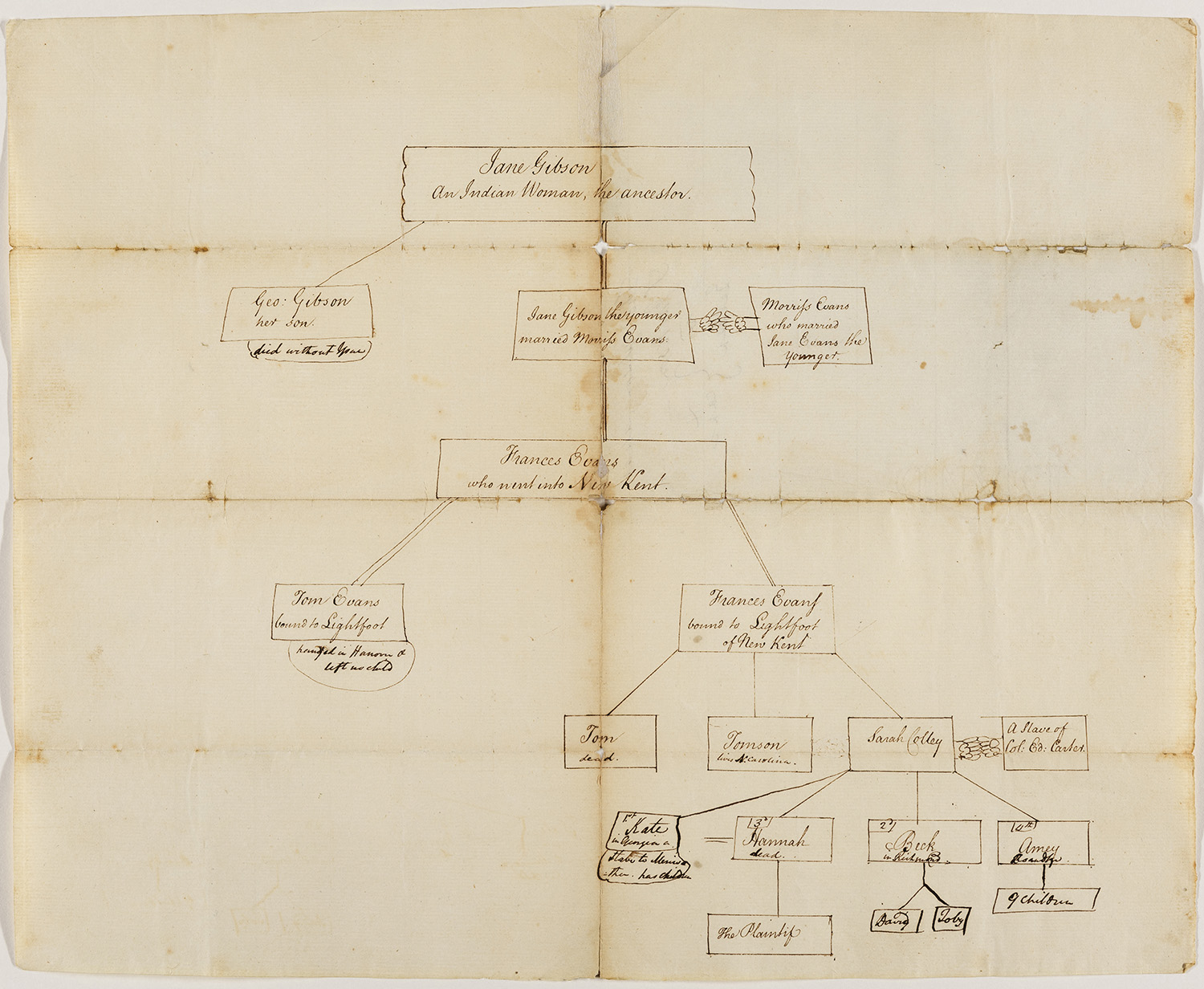George Floyd. Breonna Taylor. Ahmaud Arbery. Jacob Berryman. Cato. Dinah. Three names from current headlines. Three names from Virginia’s history found in our records.
Their names, whether uttered last week, last month, last year, or over the last 400 years, matter, as do their stories, and the Library of Virginia will do its part to make them heard by all.
As a trusted educational institution that strives to inspire learning and encourage understanding, the Library of Virginia supports Governor Northam’s calls for a more comprehensive examination of our commonwealth’s history. The Library’s extensive collections date from the 17th century to the present day and document not only the admirable moments in Virginia history, but also countless examples of institutional injustice and racial bias that have plagued our state and country since 1619.
In many cases, it is precisely because of these oppressive systems—enacted and enforced by a democratic government—that our collections include the names of millions of Black men, women, and children and other people of color. These records bear witness to the structural racism and white supremacy that dominates centuries of Virginia history. In spite of their origins, the records are also access points for the stories of individuals, stories that, very often, have never been told. They are stories of oppression and despair, but also of perseverance and triumph and of unity and hope. Perhaps most importantly they offer an opportunity to learn, grow, and change our understanding of our past and our present in order to empower our future.
To learn more about the African American experience in Virginia, visit our Virginia Memory digital collections site. There you will find Virginia Untold: the African American Narrative Digital Collection. With over 16,000 records and counting, this collection provides a voice to those silenced by centuries of oppression—their experiences bundled in administrative, estate, property, and court records stored in courthouses, attics, basements, and state agencies. They include freedom suits, petitions to remain, coroners’ inquisitions, and criminal suits. A complete list of record types is available on the Virginia Untold site.
Virginia Chronicle, the Library’s Digital Newspaper Collection, provides direct access to over one million fully text searchable pages of historical Virginia and West Virginia newspapers, including African American newspapers such as the Richmond Planet and the Hampton True Southerner. These papers offer an alternative view of events, both small and monumental, that would not be expressed in the “newspapers of record” of the time. Looking ahead, we are adding the Farmville Herald, a paper that witnessed first-hand and reported on the regrettable era of Massive Resistance as it swirled around Prince Edward County—and we will continue to add African American newspapers as we find them.

The Richmond PLANET masthead, 6 April 1929.

The Hampton TRUE SOUTHERNER masthead, 30 November 1865.
Finally, The UncommonWealth opens the archives to all with just some of the stories found in our collections that describe the adversity, tragedy, and perseverance experienced by African Americans such as Jane Webb, the Cullins sisters, and John Henry James. Additional posts drawn from Virginia Chronicle expose the African American experience, including insightful articles that drill down into pivotal issues from a century ago that are both relevant and newsworthy today.
There is no easy path to our collective future or to engaging with difficult history. But easy history is not what we are here for. The Library of Virginia is committed to doing the work not only to listen and learn as an organization, but to provide increased access to government records, private papers, newspapers, special collections, and printed material documenting the lives of all Virginians, especially those quieted for too long. By actively and honestly engaging the commonwealth’s past, we hope to help inspire Virginians to create a unified future.






